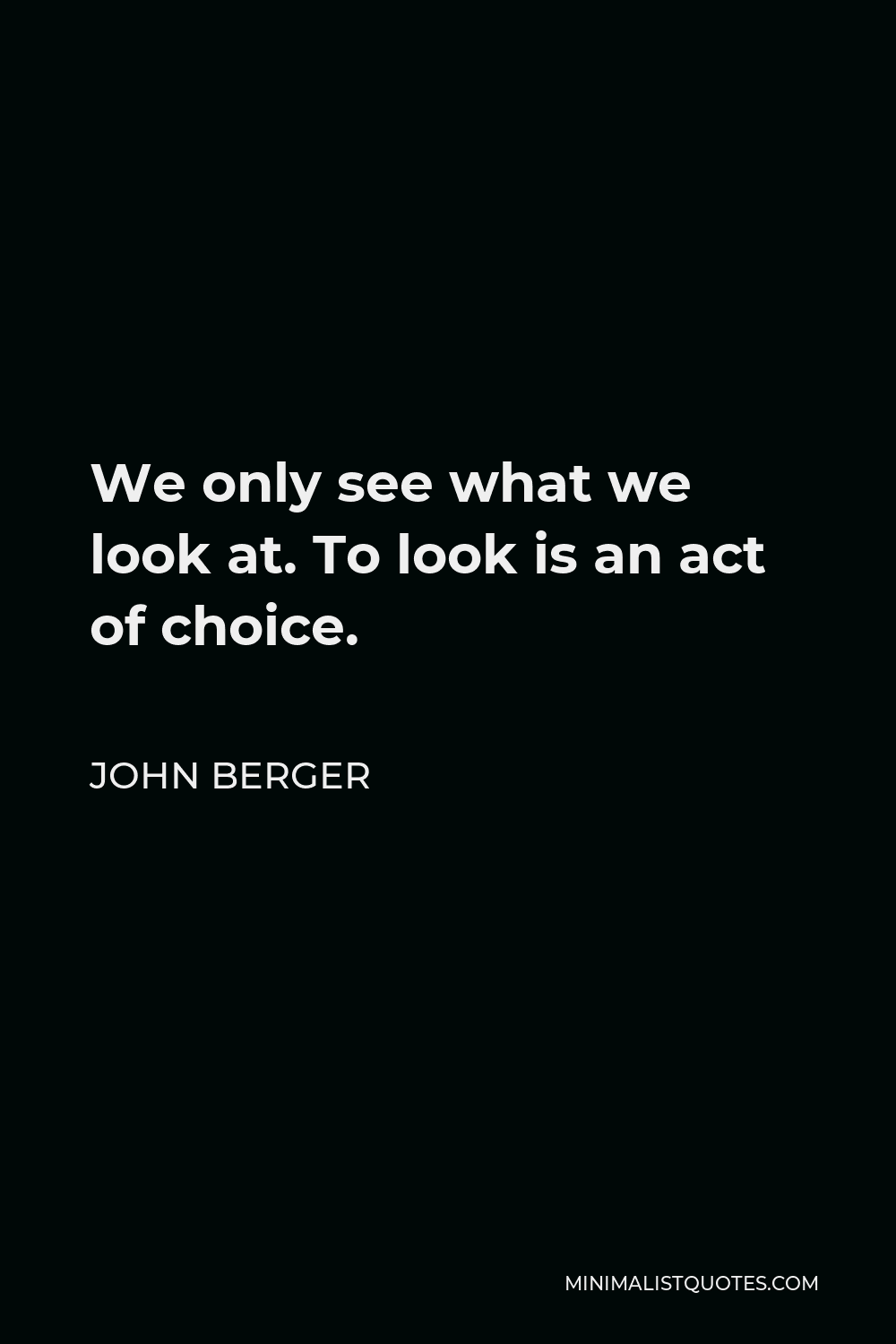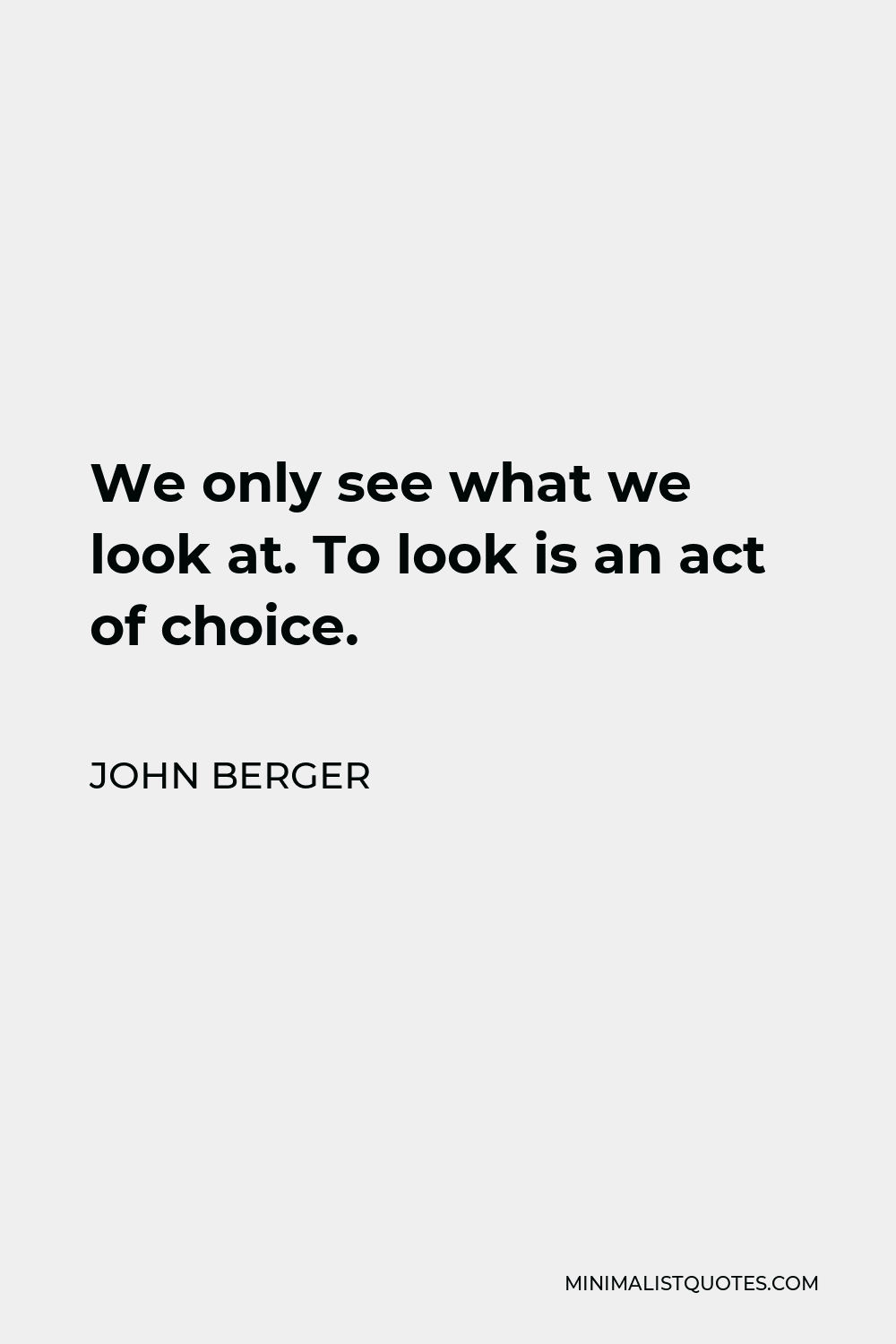What any true painting touches is an absence – an absence of which without the painting, we might be unaware. And that would be our loss.
JOHN BERGERWe only see what we look at. To look is an act of choice.
More John Berger Quotes
-





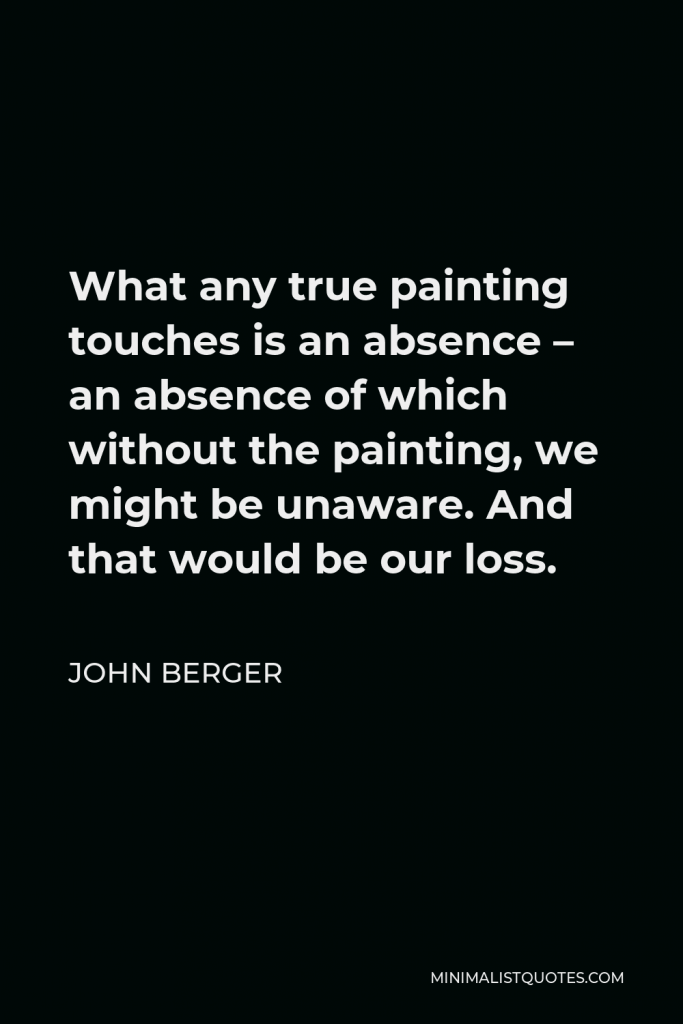

-







A tactic which allows people, as distinct from their elected but often craven governments, to apply a certain pressure on those wielding power in what they, the boycotters, consider to be an unjust or immoral way.
JOHN BERGER -





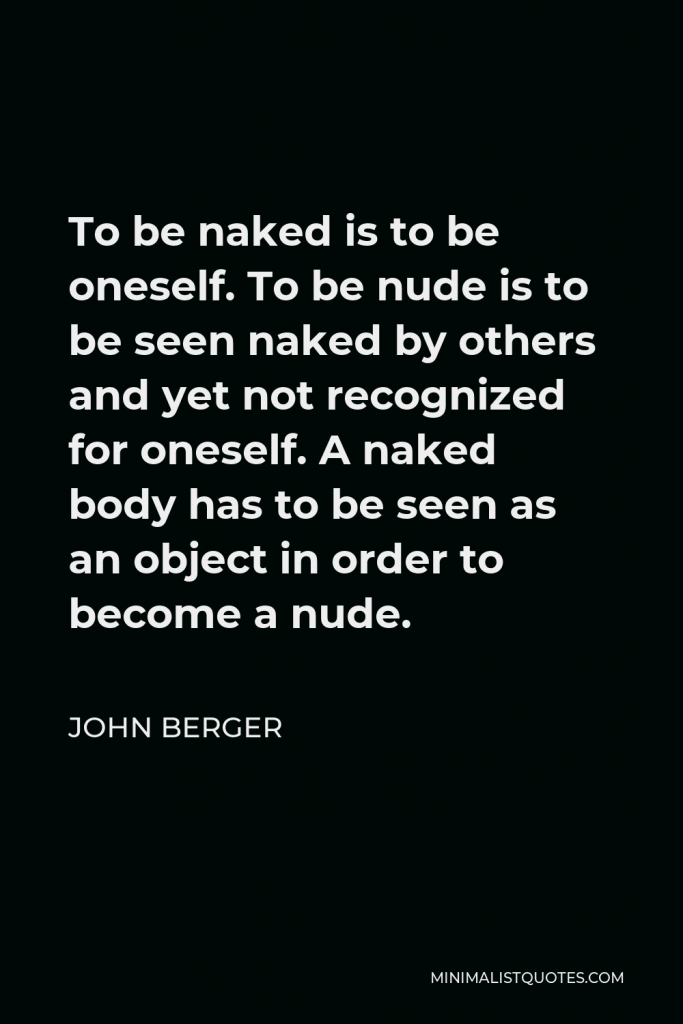

To be naked is to be oneself. To be nude is to be seen naked by others and yet not recognized for oneself. A naked body has to be seen as an object in order to become a nude.
JOHN BERGER -







Every authentic poem contributes to the labour of poetry… to bring together what life has separated or violence has torn apart.
JOHN BERGER -





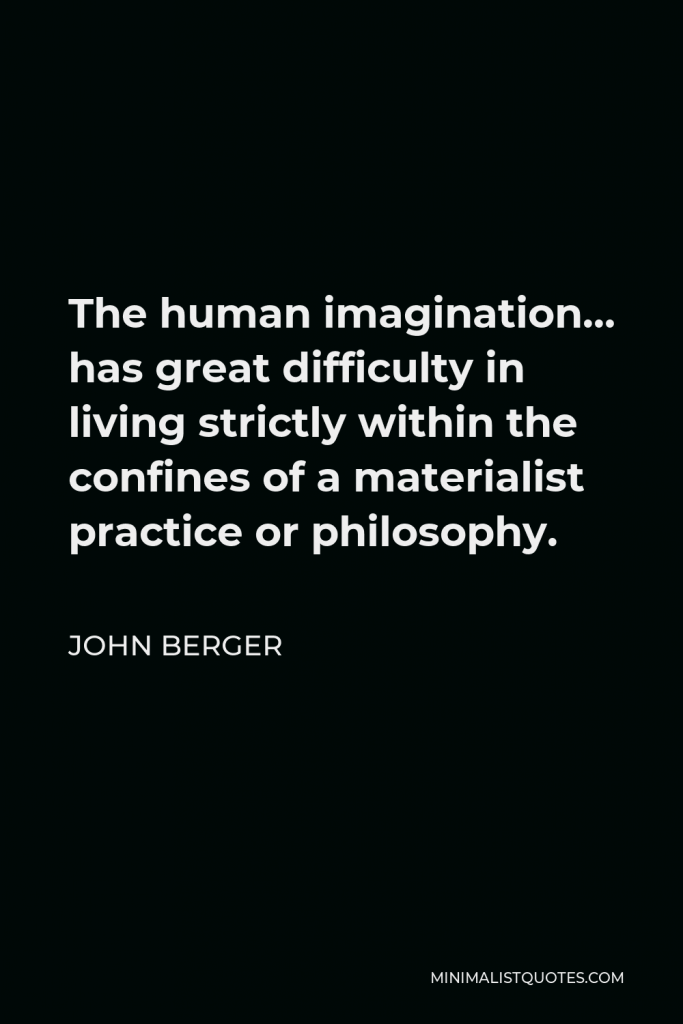

The human imagination… has great difficulty in living strictly within the confines of a materialist practice or philosophy.
JOHN BERGER -







Advertising is not merely an assembly of competing messages; it is a language itself which is always being used to make the same general proposal
JOHN BERGER -





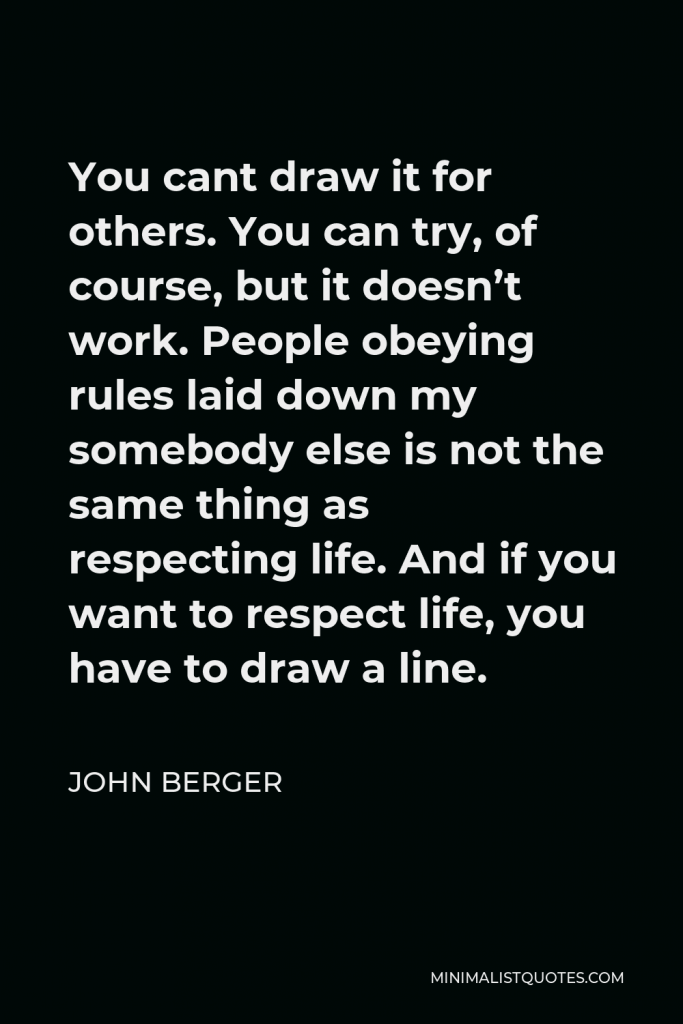

You cant draw it for others. You can try, of course, but it doesn’t work. People obeying rules laid down my somebody else is not the same thing as respecting life. And if you want to respect life, you have to draw a line.
JOHN BERGER -







Compare the cinema with theatre. Both are dramatic arts. Theatre brings actors before a public and every night during the season they re-enact the same drama.
JOHN BERGER -







Those who first invented and then named the constellations were storytellers.
JOHN BERGER -







Modern thought has transferred the spectral character of Death to the notion of time itself. Time has become Death triumphant over all.
JOHN BERGER -







Ethics determine choices and actions and suggest difficult priorities.
JOHN BERGER -





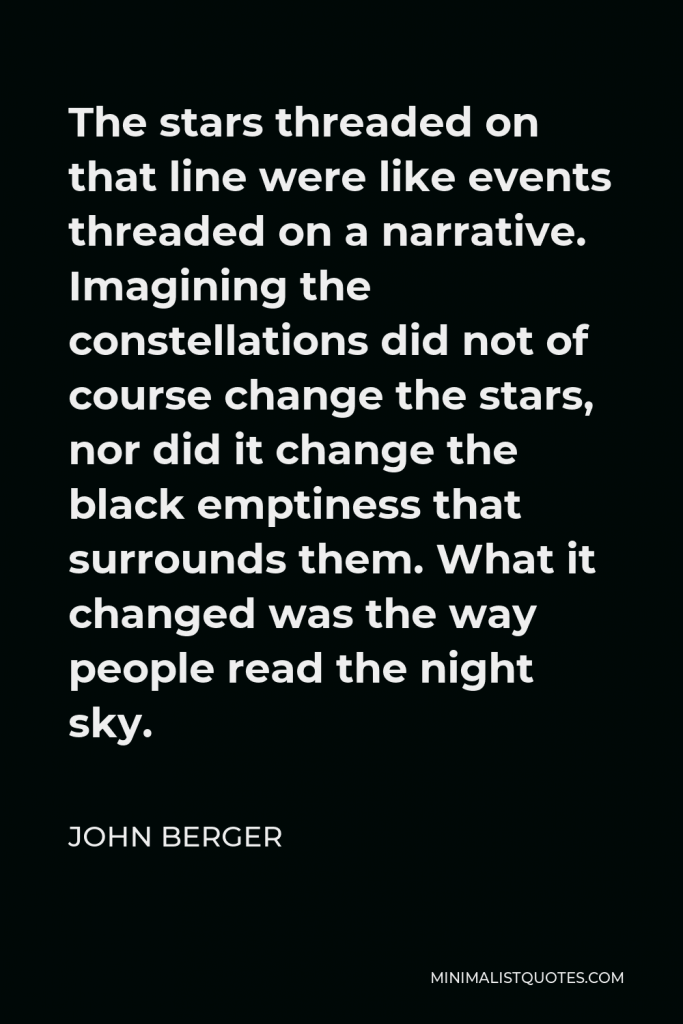

The stars threaded on that line were like events threaded on a narrative. Imagining the constellations did not of course change the stars, nor did it change the black emptiness that surrounds them. What it changed was the way people read the night sky.
JOHN BERGER -







The opposite of love is not to hate but to separate. If love and hate have something in common it is because, in both cases, their energy is that of bringing and holding together
JOHN BERGER -







Publicity is the life of this culture – in so far as without publicity capitalism could not survive – and at the same time publicity is its dream.
JOHN BERGER -





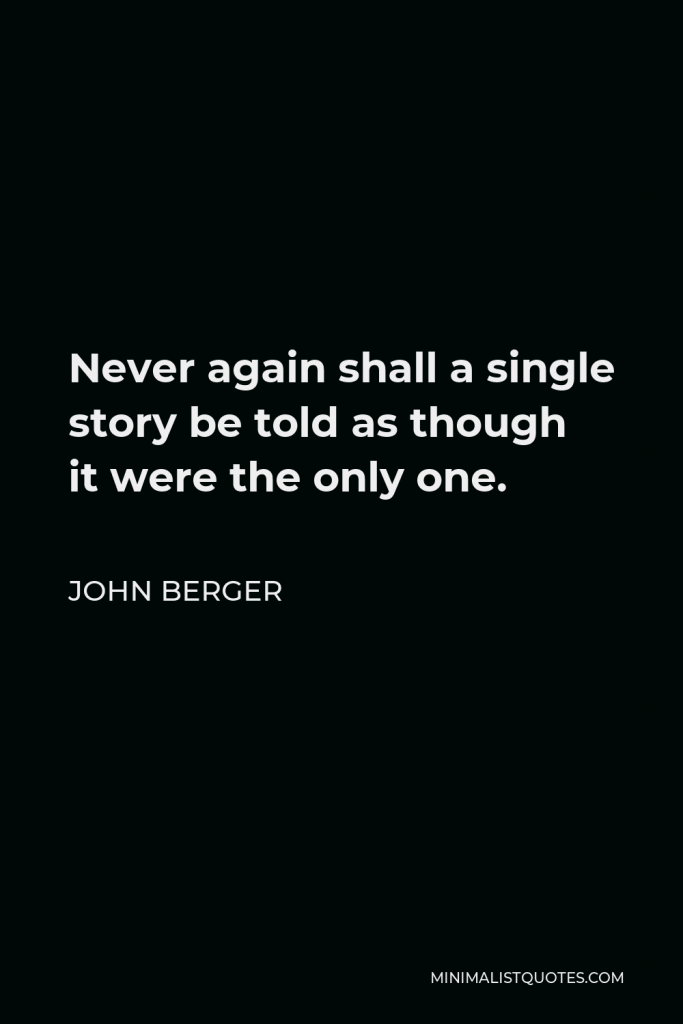

Never again shall a single story be told as though it were the only one.
JOHN BERGER -





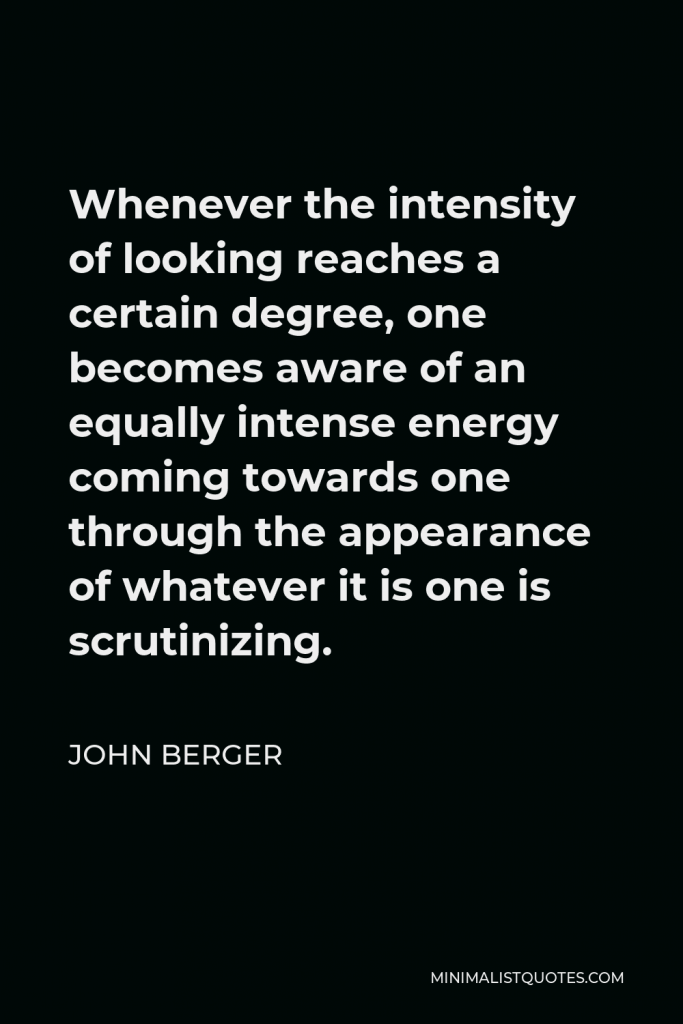

Whenever the intensity of looking reaches a certain degree, one becomes aware of an equally intense energy coming towards one through the appearance of whatever it is one is scrutinizing.
JOHN BERGER
